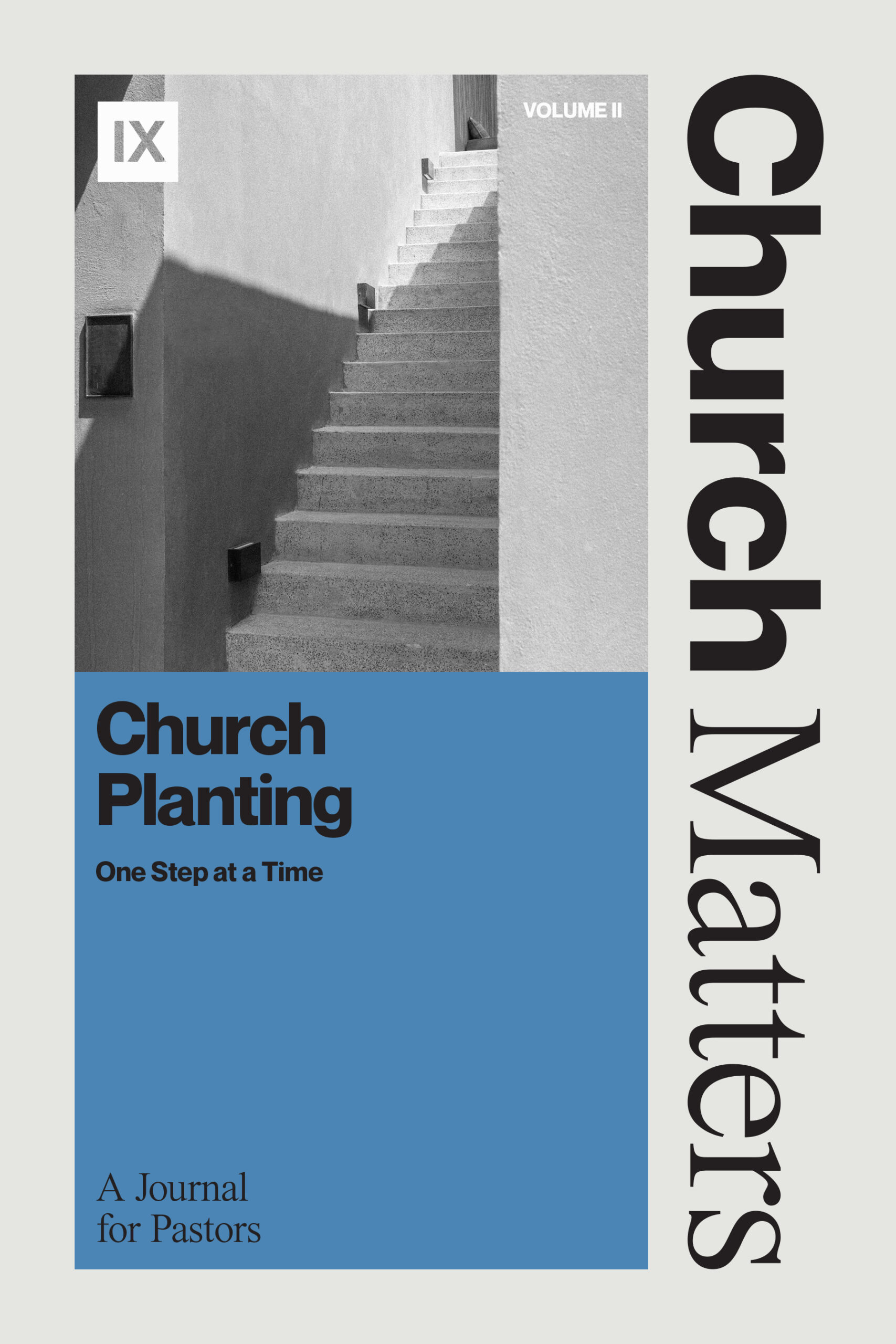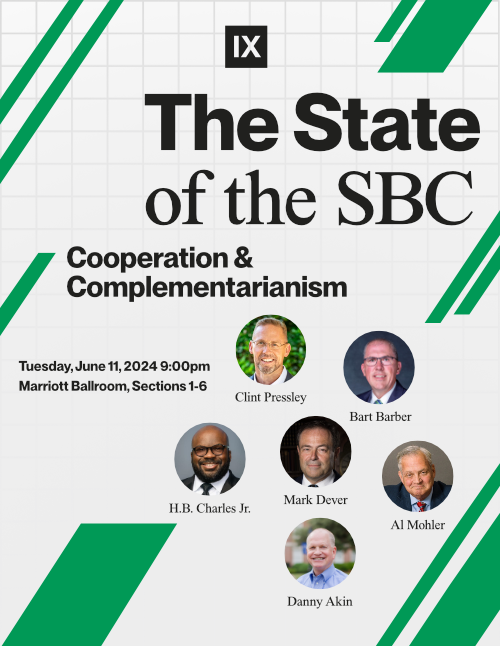Church Planting Roundtable: Counting the Cost
Church planting, in one sense, is just like any other pastoring. Yet it also forces pastors to deal with unique situations. Would-be planters, therefore, should count the cost and prepare accordingly.
In this church planting roundtable, six church planters—national and international—explain how they wish they had counted the cost, which yields counsel for the rest of us. We trust their candor will serve other church planters as they begin the work of planting a new congregation.
COUNTING THE COST
Will Forrest
Jesus provides some practical insight on the cost of discipleship: no one builds a house without first counting the cost (Luke 14:25-33). If this is true of building a house, how much truer should it be of the disciple? There is a cost in following Jesus. So with church planters. We should count the cost of the labor before starting a church. Church planting will cost whatever you are willing to pay. There is no amount of energy, time, relational capacity, or personal health that will not be depleted if you are willing to expend it in your planting efforts.
Within the first few years of our church plant, we watched sixteen new churches around us close their doors. Friends’ families endured crises. A lead planter I knew walked away from the faith, and a marriage fell apart. Unfortunately, these stories are not unique to my city. At first watching all this was disorienting, comparable to what a soldier may have felt storming the beaches of Normandy. Once you stepped out of the boat, you were unsure whether the land was any safer than the sea.
My fleshly response was to criticize or question the strategies, intentions, and motives of the guys who had gone before me, which only revealed my ignorance concerning the demands that would soon be placed upon me. The longer I walked the road of planting, the clearer I understood this reality. Church planting will cost whatever you are willing to pay. Therefore, it becomes necessary for the planter to “count the cost,” and rightly differentiate between what is being sacrificed to the Lord versus what is being sacrificed to the church plant. Christ deserves our all. The church deserves our best. We can only give the church our best when we have reserved the right for Christ to possess our all.
DISAGREEMENTS AND DEPARTURES
John Joseph
When I planted Cheverly Baptist Church in 2018, I expected to enjoy a long and fruitful ministry alongside our founding elders. Within three years, however, two of the founding elders left the church over disagreements about the practical application of our ministry philosophy. While I never expected that we would agree on everything, I also never expected that our disagreements would lead to quick departures.
The effect of the disagreements and their subsequent departure was significant. I questioned whether I was fit to lead. I was plagued by sleepless nights. My wife and I wondered how the church would respond. My kids asked why they left the church. The stress of it all—in combination with several other acute trials—led to me ending up in the hospital. And it wasn’t just hard for me. It was hard for those brothers as well. They uprooted their families from a church they loved to be part of planting CBC. Nobody wanted what happened to happen, but it happened, nonetheless. Sometimes brothers see things differently.
Disagreement leading to departures is not uncommon in the world of church planting. Now whenever I speak to prospective church planters, I emphasize the importance of over-communicating with potential elders. Assume nothing. Talk about everything. And when you think you’ve talked about it all, talk some more. Don’t just talk about theology and philosophy of ministry but about pastoral values and the culture you intend to build in the church. At the same time, you can have all the conversations in the world and still have significant disagreements that eventually lead to elders and members leaving the church. If that happens, the good news for you, your family, and for those who leave the church is that God is sovereign and is working all things together for your good and theirs.
UNEXPECTED SEPARATION
Zhang San
I did not expect that church planting would separate “goats” from the congregation. I think that is something every church planter—including those who have a healthy church as their home—needs to anticipate.
As the sending church prepared for the church plant, some church members who lived near the planting destination told us they would not participate in the new plant, even though the new church was a five-minute walk compared to a one-hour subway ride to the home church. “I can’t accept a sermon from that pastor,” expressed some members. “I just don’t want to go,” said others.
After a series of difficult conversations, some still decided to stay at the sending church, which is fine, while others changed their minds and decided to join the plant. However, one member was unwilling to change her mind and stopped attending either church. I told her she should feel free to stay at the mother church, but she felt she made herself look bad by being the only person who lived in the new church area but did not go to the new church. After reaching out to her for most of the year, she still refused to attend anywhere, and we had to practice church discipline and remove her from membership.
Looking back on this incident, I think we could have done a better job in the following ways:
- Giving the church-planting pastor more opportunities to preach and teach publicly, so that the congregation would become more familiar with him and trust him.
- Encouraging members of the sending church to consider joining the plant as a good thing to do, without making it sound like a necessary or “better Christian” thing to do, so that those who don’t want to join the plant for reasons or weakness or anything else won’t feel shamed into doing so or dropping out altogether.
When the whole church is stirred up, false faith will be revealed. Be prepared for this.
INTERNAL CHALLENGES
Joshua Chatman
As pastors, we’re to be examples to the flock. This includes modeling a love that “hopes all things” (1 Pet. 5:2–3; 1 Cor. 13:7). Yet I’ve found it particularly difficult for me to love with a love that “hope all things” after I lay everything out in preaching and then receive little encouragement from the congregation. In those moments, doubts can arise in my heart, like “they don’t like me,” “they wish I wasn’t their pastor,” or “they think I wasn’t faithful to the text.”
To be clear, unfaithful sermons should never be commended. Nonetheless, the absence of encouragement doesn’t automatically mean a preacher has been unfaithful or the congregation disapproves of him.
Yet that was my struggle in my first couple of years of ministry. I battled these thoughts and processed them with my wife and biblical counselors. Like a scalpel in the hands of a surgeon, the Lord used their counsel to cut open my heart and expose the cancerous cells of pride that I needed him to remove. My eyes were open to the reality of my problem: fearing man and living for their approval (Prov. 29:25). There’s no place for that, especially in ministry (Gal. 1:10, 1 Thes. 2:4–6). A faithful ministry can’t be measured by encouraging responses, because false teachers may be commended while distorting the gospel. Jesus was the most faithful preacher yet severely criticized (Matt. 11:19, 12:24).
I needed the Lord to refine me. I had to mortify my fleshly desires that I might truly love Jesus and rightly serve his flock. In the Lord’s kindness, I’ve grown in this area as the Spirit has enabled me to take thoughts captive, pray fervently, and minister for the pleasure of God and the edification of the saints (2 Cor. 10:5, Mark 14:38, 1 Thes. 2:4).
That’s not to say God’s ministers don’t need encouragement. They do. The Lord uses encouragement to strengthen endurance. Yet pastors shouldn’t live for it. In pastoral ministry, commendations from others aren’t guaranteed or promised in this age. But if we’re faithful to the end, we’ll hear the most glorious commendation one can ever receive: “Well done, good and faithful servant” (Matt. 25:21).
LONELINESS AND UNCERTAINTY
Caleb Greggsen
My family and I have faced two specific, surprising challenges in church-planting.
The most consistent challenge is loneliness. To be clear, I have another elder for whom I’m deeply grateful and friends in the church. But I left a church with multiple staff members, and now I work alone in my home office. Day-to-day I experience isolation. There are no drop-by conversations with a fellow pastor or even a secretary to talk with in the morning. I must plan every ministry discussion. Few happen organically. In leading a plant outside the United States, there are fewer like-minded churches nearby. I can talk on the phone with like-minded brothers—praise God for that. But that’s different from working side by side. I regularly feel lonely in the work. To address it, first, I plan time to fly to the U.S. to be around other pastors whom I know, love, and respect, with whom I can have unfiltered conversations. It takes more effort than driving to a conference up the road, but it needs to be planned.
Challenge number two in planting: the future of a new small church always feels up in the air. Where will the people come from? In the U.S., I often reminded others to be faithful and entrust the results to God. But in the uncertainty of a new, small congregation, empty seats tempt me to anxiety, to worrying about how someone might get angry over a point in the sermon, to losing sleep thinking about what I can do to get the church to grow. Additionally, as a non-citizen, my family’s long-term presence feels uncertain. There are questions about our own legal residence that often require hard work and research. Sometimes, I have no answers at all—other than to trust the Lord. I’ve never been in control of the future. I’m just much more aware of it these days.
In short, I would tell would-be planters to prepare themselves for loneliness and uncertainty, but then to recognize that this painful, humbling discipline teaches us to work hard and trust God for the sake of the sheep he entrusts to us.
CHURCH PLANTS: VISIBLE SPECIMENS REQUIRING TENDER LOVE
Trell Ross
I think it’s mostly fitting that we use the phrase “church planting” to refer to starting new churches. I’m not sure why this has come to be the most prominent term, but I would guess it has something to do with the word picture of a seed growing into something larger and beautiful. Planters hope to see the gospel work of a few people grow into a larger body of Christians devoting themselves to all the God-glorifying work of a church.
As I say, the term fits mostly. Where does it fall short?
The term “church planting” can be somewhat misleading. With real plants, seeds lie under the soil for some time before anything emerges above the surface. Not so a church plant. Church plants are visible and require tender love and care from day one. At the outset, there will be culture to build, needs to be met, teaching to be done, people to be cared for, sacrifices to be made by you and your family, and so on.
Why am I telling church planters this? To encourage you to view your church plant not as a plant but as a church from the very first time you take the Supper, if not before. Calculate your expectations both for them and for you. This will serve you and your people well from day one of the above ground living that characterizes a church plant.
Related Multimedia

Why Bad Polity Hurt My Church Plant
By Phil Newton












